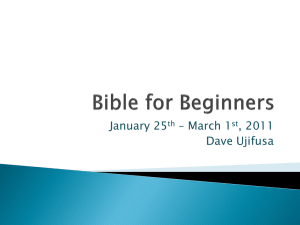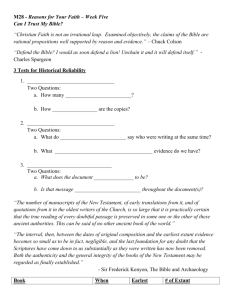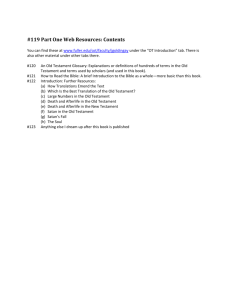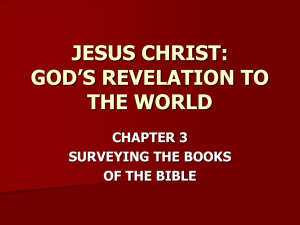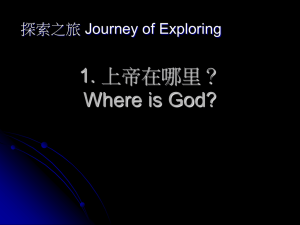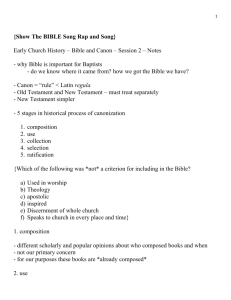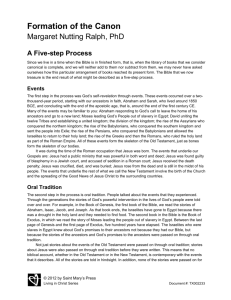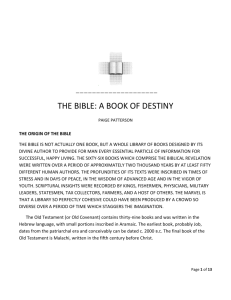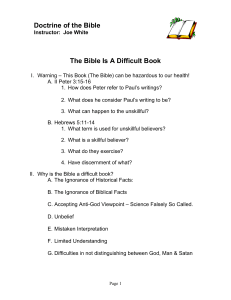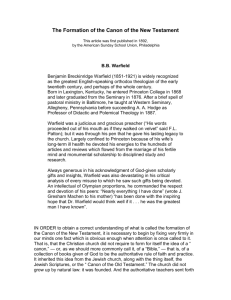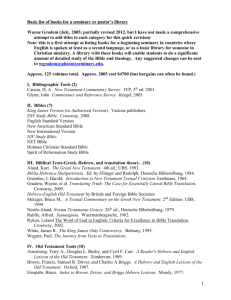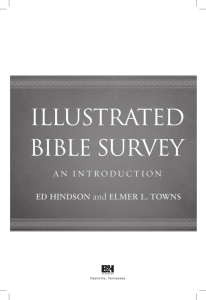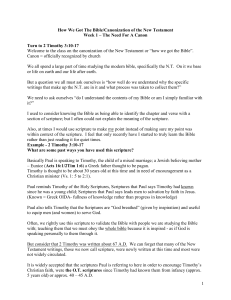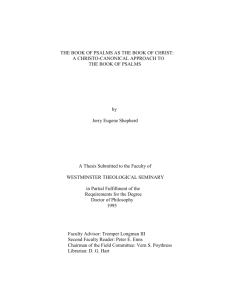Vocabulary for Unit 1
advertisement
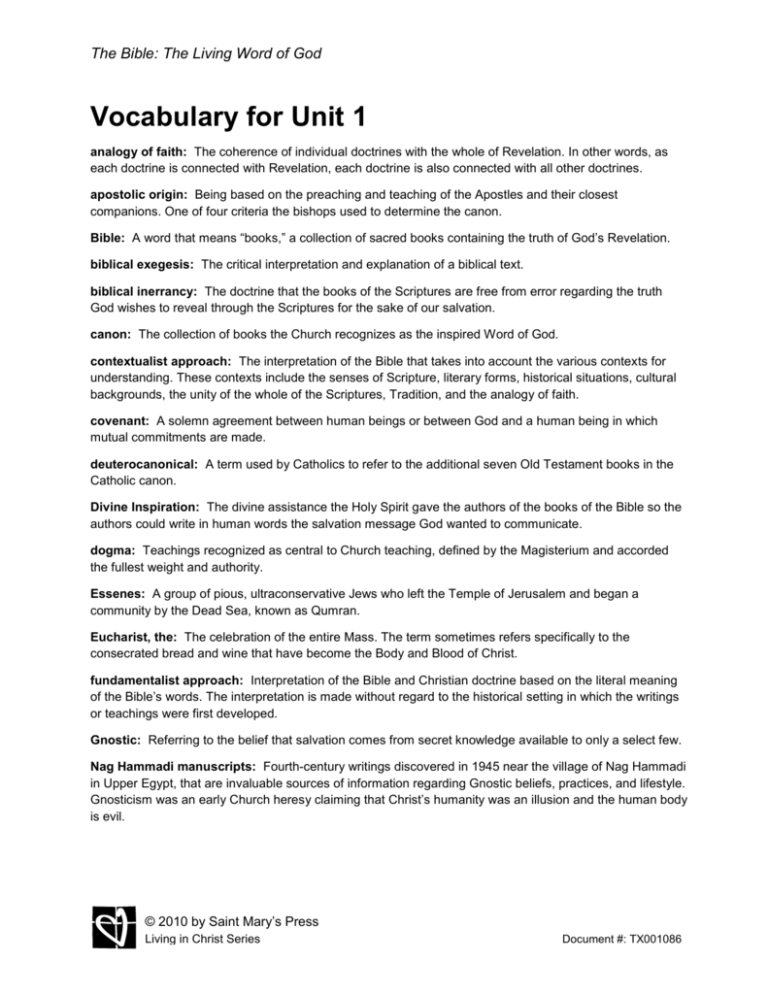
The Bible: The Living Word of God Vocabulary for Unit 1 analogy of faith: The coherence of individual doctrines with the whole of Revelation. In other words, as each doctrine is connected with Revelation, each doctrine is also connected with all other doctrines. apostolic origin: Being based on the preaching and teaching of the Apostles and their closest companions. One of four criteria the bishops used to determine the canon. Bible: A word that means “books,” a collection of sacred books containing the truth of God’s Revelation. biblical exegesis: The critical interpretation and explanation of a biblical text. biblical inerrancy: The doctrine that the books of the Scriptures are free from error regarding the truth God wishes to reveal through the Scriptures for the sake of our salvation. canon: The collection of books the Church recognizes as the inspired Word of God. contextualist approach: The interpretation of the Bible that takes into account the various contexts for understanding. These contexts include the senses of Scripture, literary forms, historical situations, cultural backgrounds, the unity of the whole of the Scriptures, Tradition, and the analogy of faith. covenant: A solemn agreement between human beings or between God and a human being in which mutual commitments are made. deuterocanonical: A term used by Catholics to refer to the additional seven Old Testament books in the Catholic canon. Divine Inspiration: The divine assistance the Holy Spirit gave the authors of the books of the Bible so the authors could write in human words the salvation message God wanted to communicate. dogma: Teachings recognized as central to Church teaching, defined by the Magisterium and accorded the fullest weight and authority. Essenes: A group of pious, ultraconservative Jews who left the Temple of Jerusalem and began a community by the Dead Sea, known as Qumran. Eucharist, the: The celebration of the entire Mass. The term sometimes refers specifically to the consecrated bread and wine that have become the Body and Blood of Christ. fundamentalist approach: Interpretation of the Bible and Christian doctrine based on the literal meaning of the Bible’s words. The interpretation is made without regard to the historical setting in which the writings or teachings were first developed. Gnostic: Referring to the belief that salvation comes from secret knowledge available to only a select few. Nag Hammadi manuscripts: Fourth-century writings discovered in 1945 near the village of Nag Hammadi in Upper Egypt, that are invaluable sources of information regarding Gnostic beliefs, practices, and lifestyle. Gnosticism was an early Church heresy claiming that Christ’s humanity was an illusion and the human body is evil. © 2010 by Saint Mary’s Press Living in Christ Series Document #: TX001086 Vocabulary for Unit 1 Page | 2 New Testament: The twenty-seven books of the Bible written in apostolic times, which have the life, teachings, Passion, death, Resurrection, and Ascension of Jesus Christ and the beginnings of the Church as their central theme. Old Testament: The forty-six books that make up the first part of the Bible and record salvation history before the coming of the Savior, Jesus Christ. oral tradition: The handing on of the message of God’s saving plan through words and deeds. Pentateuch: A Greek word meaning “five books,” referring to the first five books of the Old Testament. redact: To select and adapt written material to serve an author’s purpose. redemption: From the Latin redemptio, meaning “a buying back,” referring, in the Old Testament, to Yahweh’s deliverance of Israel and, in the New Testament, to Christ’s deliverance of all Christians from the forces of sin. salvation history: The pattern of specific events in human history in which God clearly reveals his presence and saving actions. Salvation was accomplished once and for all through Jesus Christ, a truth foreshadowed and revealed throughout the Old Testament. testament: A solemn vow and contract to which God is a witness. It is a synonym of covenant. Torah: A Hebrew word meaning “law,” referring to the first five books of the Old Testament. universal acceptance: Acknowledgment among Christians that a book was useful for worship. This criterion helped the early bishops to conclude whether a book was divinely inspired. One of four criteria the bishops used to determine the canon. Vulgate: Saint Jerome’s Latin translation of the Bible completed in the early fifth century AD. written tradition: Under the inspiration of the Holy Spirit, the synthesis in written form of the message of salvation that has been passed down in the oral tradition. © 2010 by Saint Mary’s Press Living in Christ Series Document #: TX001086

